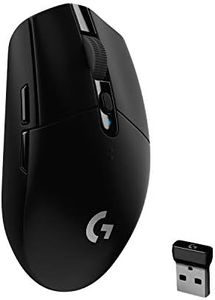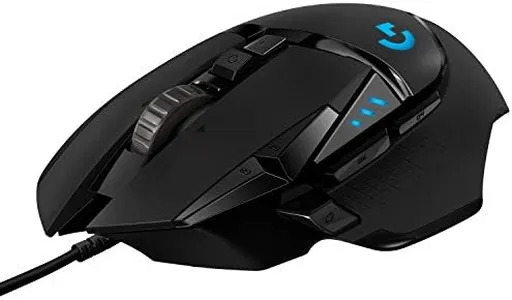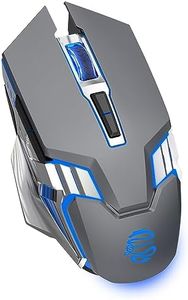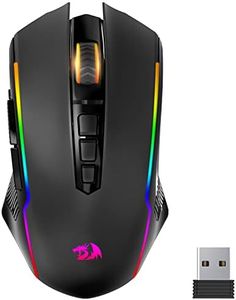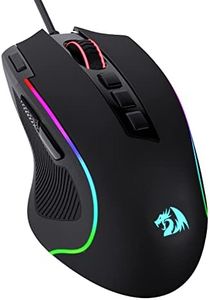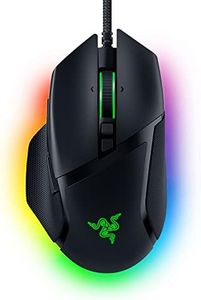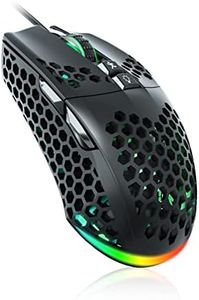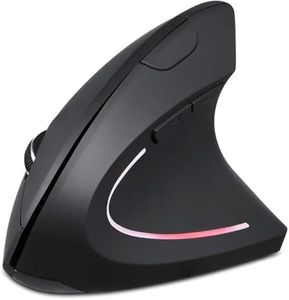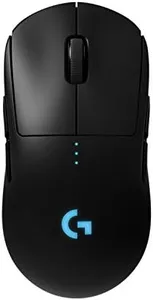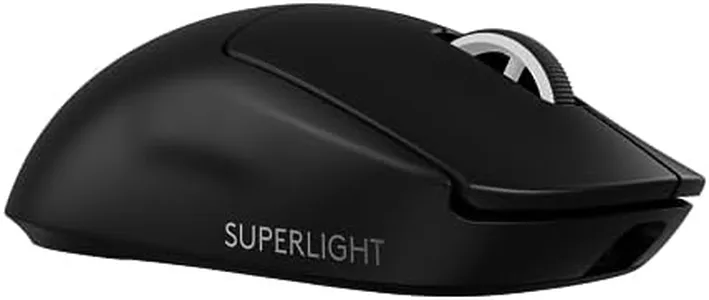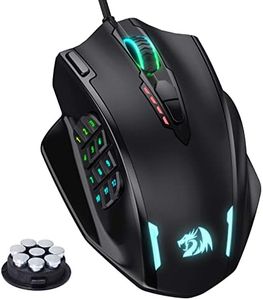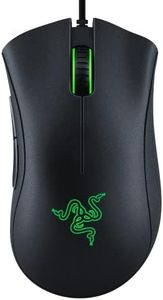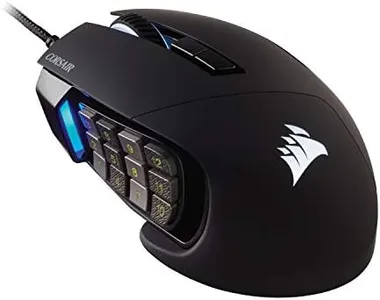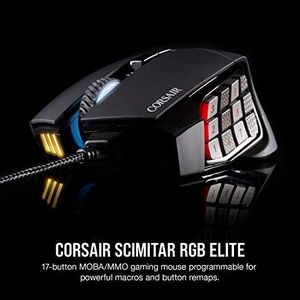10 Best Cheap Gaming Mouses 2025 in the United States
Winner
Logitech G305 LIGHTSPEED Wireless Gaming Mouse, Hero 12K Sensor, 12,000 DPI, Lightweight, 6 Programmable Buttons, 250h Battery Life, On-Board Memory, PC/Mac - Black
The Logitech G305 LIGHTSPEED Wireless Gaming Mouse is a solid choice for those looking for an affordable yet high-performing gaming mouse. One of its standout strengths is the HERO 12K sensor, which offers up to 12,000 DPI and excellent accuracy, making it ideal for fast-paced gaming. The LIGHTSPEED wireless technology ensures a lag-free experience with a 1ms report rate, which is critical for competitive gaming. Additionally, the mouse is lightweight at 99 grams, enhancing maneuverability during intense gameplay sessions.
Most important from
32882 reviews
Logitech G502 HERO High Performance Wired Gaming Mouse, HERO 25K Sensor, 25,600 DPI, RGB, Adjustable Weights, 11 Programmable Buttons, On-Board Memory, PC / Mac
The Logitech G502 HERO High Performance Wired Gaming Mouse offers high-end features at a competitive price, making it a great choice for budget-conscious gamers. Its HERO 25K sensor, capable of up to 25,600 DPI, provides excellent precision and responsiveness, essential for gaming. The mouse boasts a 1000Hz polling rate, ensuring smooth and accurate tracking. Ergonomically, it is designed for comfort during long gaming sessions and includes adjustable weights to fine-tune its balance to your liking.
Most important from
54314 reviews
Top 10 Best Cheap Gaming Mouses 2025 in the United States
Winner
9.9 score
Logitech G305 LIGHTSPEED Wireless Gaming Mouse, Hero 12K Sensor, 12,000 DPI, Lightweight, 6 Programmable Buttons, 250h Battery Life, On-Board Memory, PC/Mac - Black
Logitech G305 LIGHTSPEED Wireless Gaming Mouse, Hero 12K Sensor, 12,000 DPI, Lightweight, 6 Programmable Buttons, 250h Battery Life, On-Board Memory, PC/Mac - Black
Chosen by 1480 this week
Logitech G502 HERO High Performance Wired Gaming Mouse, HERO 25K Sensor, 25,600 DPI, RGB, Adjustable Weights, 11 Programmable Buttons, On-Board Memory, PC / Mac
Logitech G502 HERO High Performance Wired Gaming Mouse, HERO 25K Sensor, 25,600 DPI, RGB, Adjustable Weights, 11 Programmable Buttons, On-Board Memory, PC / Mac
Logitech G Pro Wireless Gaming Mouse with Esports Grade Performance
Logitech G Pro Wireless Gaming Mouse with Esports Grade Performance
Logitech G PRO X SUPERLIGHT 2 LIGHTSPEED Wireless Gaming Mouse, 8K Polling, Lightweight, LIGHTFORCE Hybrid Switches, HERO 2 Sensor, 888 IPS, 44,000 DPI, 5 Programmable Buttons,USB-C Charging, PC & Mac
Logitech G PRO X SUPERLIGHT 2 LIGHTSPEED Wireless Gaming Mouse, 8K Polling, Lightweight, LIGHTFORCE Hybrid Switches, HERO 2 Sensor, 888 IPS, 44,000 DPI, 5 Programmable Buttons,USB-C Charging, PC & Mac
Our technology thoroughly searches through the online shopping world, reviewing hundreds of sites. We then process and analyze this information, updating in real-time to bring you the latest top-rated products. This way, you always get the best and most current options available.

